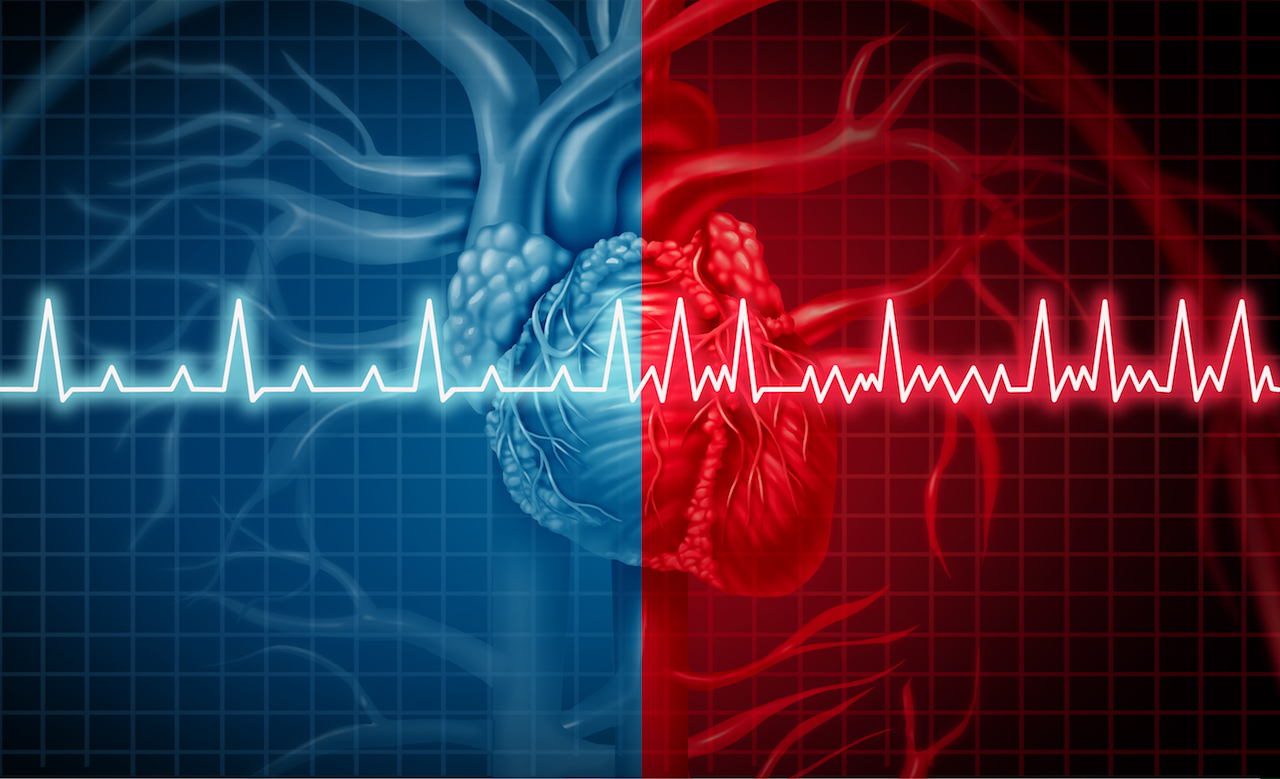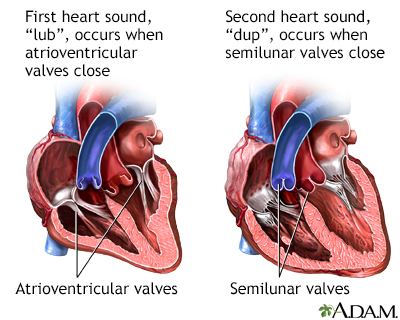Occasional Heart Palpitations
Imagine that you are shopping or taking the children to school before going to work, when suddenly your heart begins to beat really fast. You feel as if your heart could jump from your chest; it is difficult to breathe and you feel dizzy and anxious. You might even worry that you're having a heart attack. However, after taking a few seconds or minutes to recover, you notice that your cardiac rhythm becomes normal again. If this happens to you, you may be experiencing tachycardia and, while it is not normally fatal, it can be unsettling. Therefore, we recommend that you know how to act when faced with this situation and learn how to stop heart palpitations naturally.
See full list on mayoclinic.org. Elevated fever, low blood pressure, anemia, low blood sugar levels or an overactive thyroid can lead to heart palpitations. Treatments: See your doctor to get the correct diagnosis and treatment for your medical condition. This should stop your heart palpitations. Nearly a month after revealing she tested positive for COVID-19 antibodies, Alyssa Milano says she's still dealing with some scary lingering symptoms like 'occasional heart palpitations'.
Vagus nerve stimulation:
If you feel that you are experiencing heart palpitations that start in the upper part of your heart, i.e. supraventricular tachycardia (SVT), you should consider the following advice:
- Slow down your breathing and blood pressure, splash your face with cold water or cough forcefully.
- Take long deep breaths while bending your head down towards your stomach or even by applying pressure to your eyelids.
- If these techniques do not work, apply slight pressure to the carotid artery, by placing your index and middle fingers next to the larynx (also known as the Adam's Apple).
These exercises stimulate the vagus nerve to curb the electrical impulses controlling the cardiac rhythm.
Stress:
If, when your stress levels increase, you suffer tachycardia, you need to adopt certain relaxation techniques, such as breathing deeply or even by taking up yoga. Furthermore, you need to take some time to relax and clear your mind; for example, you can relax a while on the sofa and read a book.

Try to minimize the problems in your life or change the way you react to the problems in your life. This can be very difficult to do alone, so finding a specialist - a psychologist, yoga instructor or acupuncturist - can help make this transition in fighting stress a little easier.
Exercise:
Find time in your daily routine to strengthen your heart muscles through exercise. Exercise helps the heart to pump more blood, which will lower your heart-rate and also reduce your stress levels. But for this to be effective, you must exercise on a regular basis.
Diet:
As in any healthy diet, you will need to control your intake of certain foods. Eliminate processed carbohydrates, such as white bread and refined cereals and wheat products from your diet, as well as potatoes, sweets, desserts and soft drinks. Add healthy foods, such as complex carbohydrates with high-fiber content, wholemeal bread and brown rice, vegetables (especially raw ones), legumes, fruit (except bananas), and meat. For vegetarians, three or four servings of legumes per week will satisfy your protein needs.
Minerals & vitamins:
Magnesium promotes a regular heartbeat, so you should add more magnesium-rich food to your diet. Some good options are: spinach, almonds, cucumber, avocado, lentils, onions, oranges, peaches, peas, beans, pumpkin and radish. If you believe that you cannot add sufficient magnesium-rich foods to your diet, take magnesium supplements instead. For this, we recommend that you look at our articles how to take magnesium and what is magnesium good for.
Caffeine:

Cutting your consumption of caffeine is crucial to stop heart palpitations naturally, and this includes coffee, tea, chocolate and other caffeinated drinks, such as soft drinks. You have to bear in mind that even caffeine-free drinks contain small amounts of caffeine. This doesn't mean that you cannot enjoy these drinks once in a while, but if you notice that your heart beats strongly after a second cup of coffee, it is likely that caffeine is your trigger.
Arrhythmia Palpitations
This article is merely informative, oneHOWTO does not have the authority to prescribe any medical treatments or create a diagnosis. We invite you to visit your doctor if you have any type of condition or pain.

If you want to read similar articles to How to Stop Heart Palpitations Naturally, we recommend you visit our Diseases & secondary effects category.
- Make sure that you have a proper medical diagnosis of tachycardia before incorporating these methods into your lifestyle.
- Always consult with your doctor before adding new supplements to your diet.
- You should go for regular check-ups with your doctor or cardiologist.
It seems as though almost everyone has heard a cautionary tale about heart health. An unrecognized symptom, an undetected heart condition, or pushing your heart to its maximum capacity during practice or time outdoors can all produce a dangerous, and sometimes fatal, result. Stories like these have prompted awareness about heart conditions and heart health, and have also helped to increase knowledge of which symptoms to keep an eye out for.
Heart palpitations, the feeling of a rapid, fluttering, pounding, or otherwise irregular heartbeat, is one of those symptoms. When these occur during physical activity or on particularly warm days, it’s a cue to slow or stop what you’re doing. However, heart palpitations aren’t exclusive to situations like these. Anyone can be affected by that feeling of a fluttering heart, which is why understanding the causes and concerns associated with it can help you determine whether or not to worry.
“Heart palpitations can be alarming, because your heartbeat feels abnormal,” explains Richard R. McCurdy Jr., MD, Lankenau Heart Institute cardiologist at Riddle Hospital, part of Main Line Health. “Fortunately, most palpitations are not dangerous and often can be explained by external factors.”
These external factors can include exercise, emotions like stress or anxiety, or increased amounts of nicotine or caffeine. Certain medications can also trigger heart palpitations, including inhalers for asthma and over the counter cold treatments, so talk to your doctor about the potential side effects of your medications if you’re concerned.
Typically, when heart palpitations are caused by factors like these, it will feel as though your heart is pumping faster or harder than usual or you will notice skipped or fluttering heartbeats. These symptoms are usually felt in your chest, but can also be felt in the throat or neck, so don’t be alarmed if you notice symptoms in these places, as well.
However, if these palpitations last longer than a few seconds, or are associated with other symptoms, there may be some underlying medical concerns. If your palpitations are accompanied by dizziness, fainting, shortness of breath, or chest pain, you should seek medical attention.
“Palpitations can be caused by a wide range of abnormal heart rhythms. Some of these are actually relatively common and not dangerous at all. These palpitations will be very short, no more than a couple seconds, and not accompanied by any other symptoms. However, when palpitations last a few minutes or more, or are combined with other symptoms, that’s when it has the potential to be a bigger issue. It could mean that you are at risk for complications like heart failure or cardiac arrest,” says Dr. McCurdy.
Heart Palpitations When To Worry
Although results like these are rare, it’s important to understand the warning signs for serious cardiac issues like these. Reduce your risk for any heart problems by leading a healthy lifestyle. Quit smoking, eat a balanced diet and aim to exercise for 30 to 60 minutes five days per week.
Heart Palpitations When Lying Down
This article is not a substitute for medical advice offered by your physician. If you notice repeated episodes of heart palpitations or have questions, make an appointment with your doctor, who can help you know for sure whether or not you should be concerned. Visit our website for a full list of Lankenau Heart Institute cardiologists in your area.